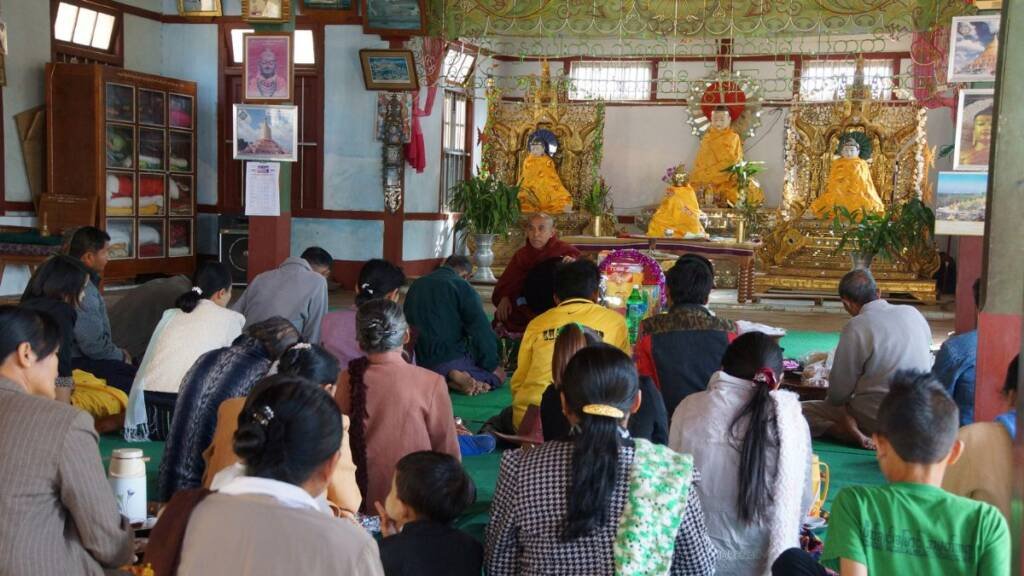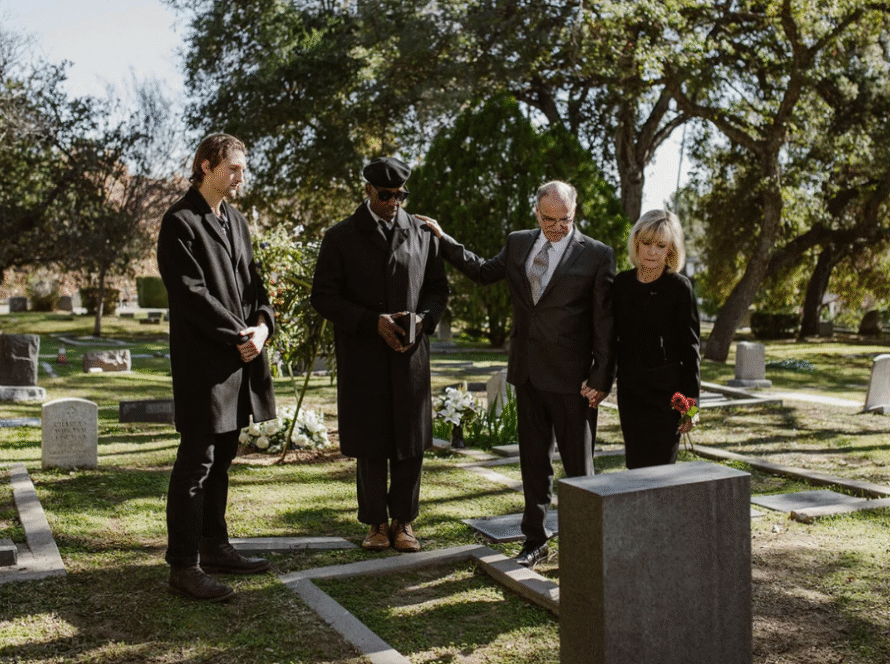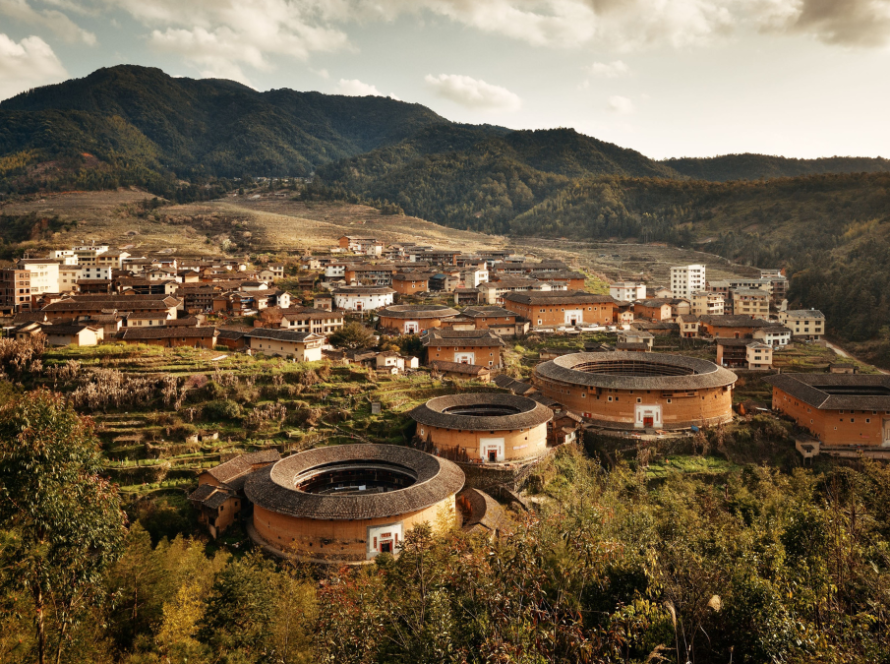In Buddhism, death is considered a natural part of life and not something to be feared. For Buddhists, death can be either the beginning of a new cycle of rebirth or the arrival of liberation, depending entirely on whether an individual can completely let go of worldly attachments. Consequently, Buddhism advocates for simple yet dignified funeral rites, emphasizing the significance of rituals and the merit transfer to the deceased.
Buddhist Views on Death
Buddhism teaches that death is merely the start of another cycle of rebirth. Only by overcoming delusions and ego can one achieve liberation from the cycle of life and death and attain Nirvana. For most people, however, overcoming the defilements and achieving enlightenment is challenging. Therefore, the Pure Land school of Buddhism emphasizes the importance of handling the moment of death with great care. It is believed that if a person, at the time of death, sincerely chants the name of Amitabha Buddha with faith and aspiration, they can rely on the Buddha’s vow power to transcend the three realms of existence, even if they have committed numerous bad deeds in their lifetime. This belief explains why modern Buddhists place significant importance on the practice of reciting Buddha’s name for the dying, known as “Nianfo.”
Key Components and Practices of Buddhist Funeral Rites
Reciting Buddha’s Name at the Moment of Death
Buddhism views life and death as the result of karmic conditions. Therefore, when a loved one is nearing death, it is important not to grieve or cry excessively. During the dying process, the consciousness is leaving the body, which can be a painful experience. The environment should be kept calm and quiet, without crying or pulling the dying person, so that they can pass away peacefully. The thoughts at the moment of death are crucial, and a mind focused on the Buddha can lead to rebirth in the Pure Land. Family members are encouraged to recite Buddha’s name sincerely for 8 to 12 hours after death, during which the consciousness has not yet completely departed from the body.
Placement of the Body
After a loved one passes away, family members should continue to recite Buddha’s name beside the body and leave it undisturbed for 8 to 12 hours. Once the body cools, it can be moved to a funeral home or placed in a home altar for embalming or storage. Since Buddhism does not endorse the concept of an underworld, there are no practices such as “burning soul boats,” “foot-end rice,” or “foot-end lights,” and no recitation of “foot-end scriptures.”
Erecting a Memorial Tablet
While Buddhism does not believe in the existence of “three souls and seven spirits” or the need to “summon souls,” it respects traditional Chinese funeral customs by setting up a memorial tablet or spirit banner for the deceased. However, there is no burning of spirit money or offering of morning and evening meals, only the offering of fresh flowers and vegetarian food.
The “Seven-Sevens” and Memorial Services
Buddhism teaches that the consciousness remains in the intermediate state (Bardo) for 49 days after death before rebirth. In traditional Chinese Buddhist funerals, performing the “Seven-Sevens” (rituals held every seven days for 49 days) and memorial services are significant for helping the deceased accumulate merit and dissipate negative karma. However, due to the increasing popularity of reciting Buddha’s name, many Buddhists now consider this practice to be sufficient, making it unnecessary to hold elaborate memorial services. Instead, families often recite scriptures morning and evening or invite monks to lead scripture recitation.
Coffin Placement and Burial
Though Buddhism considers the body as merely an “empty shell” after death, it still advocates for respectful treatment of the deceased. After the body is cleansed, dressed, and prepared, it is placed in a coffin. Unlike traditional customs, there are no requirements for multiple layers of burial clothes, nor are personal items like “burial clothes” or “mountain-crossing pants” placed in the coffin.
Funeral Procession and Farewell Ceremony
Buddhist funeral rites include a memorial service before the burial, similar to traditional funeral customs. Family members perform a memorial ceremony according to their relationship with the deceased, followed by friends and guests offering incense and paying their respects.
Cremation, Burial, and Placement of Ashes
The custom of cremation was introduced to China along with Buddhism and became widely accepted during the Song dynasty. While its popularity declined over time, cremation is now the most common practice in Taiwan, with nearly 90% of the population choosing it. After cremation, the ashes are stored in an urn and placed in a columbarium.
Memorial Rites for the Deceased
Buddhism teaches that rebirth occurs within 49 days after death, so there is no need for ongoing memorial services. However, in respect of traditional funeral customs and family sentiments, memorial and worship practices similar to traditional rites are often observed.

Commemorative Rituals: Hundred Days, Anniversary, and Three-Year Memorials
Buddhism views commemorative rituals such as the “Hundred Days,” “Anniversary,” and “Three-Year Memorial” as important dates marking the death of a loved one. These rituals typically include worship and scripture recitation, similar to traditional funeral customs.
Honoring the Ancestors
Buddhists observe traditional practices of visiting and paying respects at the graves of ancestors during occasions like the Qingming Festival and on death anniversaries, reflecting respect and remembrance for those who have passed.
Conclusion
Buddhist funeral rites emphasize simplicity and dignity, focusing on the importance of reciting Buddha’s name and transferring merit to the deceased. By understanding death as a natural transition, Buddhists seek to assist the deceased in achieving a better rebirth in the cycle of samsara while also expressing respect and remembrance through various rituals. These practices not only reflect Buddhist teachings but also embody wisdom and compassion in facing the realities of life and death.
佛教与丧葬仪式:理解佛教对死亡的观念和丧葬习俗
在佛教中,死亡被视为生命的自然组成部分,而非恐惧之事。对佛教徒而言,死亡可以是新一轮轮回的开始,也可以是解脱的到来,这完全取决于个人能否彻底放下世间的执著。因此,佛教提倡简朴而庄严的丧葬仪式,强调仪式的重要性和对亡者的回向。
佛教对死亡的看法
佛教认为,死亡只是另一个轮回的起点。只有克服妄念和自我,才能从生死轮回中解脱,达到涅槃境界。然而,对大多数人来说,克服烦恼并获得开悟是非常困难的。因此,净土宗强调对临终时刻的慎重处理,认为如果临终之人能至诚地念诵阿弥陀佛圣号,并发愿往生西方极乐净土,就能依靠佛的愿力超脱三界,即使生前多有过失亦可得救。这种信念解释了现代佛教徒为何重视为临终者念佛,即“助念”。
佛教丧葬仪式的关键组成部分和实践
临终助念
佛教认为生命和死亡都是因缘和合的结果。因此,当亲人临终时,不宜过度悲伤哭泣。在临终过程里,意识即将离开身体,这可能是痛苦的经历。因此,环境应保持平静安详,不要哭喊或拉扯临终者,以便其安然离世。此刻的念头至关重要,专心于佛号的心可以引导往生净土。家属应在死亡后继续真诚助念佛号8至12小时,此时意识尚未完全离体。
遗体的安置
亲人去世后,家属应继续在遗体旁助念佛号,并保持遗体不动8至12小时。待遗体冷却后,可移至殡仪馆或安放在家庭祭坛上进行入殓或暂时保存。由于佛教不支持阴间的概念,因此没有“烧纸船”“脚尾饭”或“脚尾灯”等做法,也不诵“脚尾经”。
设立灵位
佛教并不相信“三魂七魄”或“召魂”的存在,但出于对中国传统丧葬习俗的尊重,仍会为亡者设立灵位或灵幡。然而,没有烧纸钱或奉上早晚餐的做法,而是以鲜花和素食为供品。
“七七”法事与超荐
佛教认为亡者死后49天之内,意识停留在中阴状态,并等待转世。在传统的中国佛教丧礼中,行“七七”法事(每七天一次,持续49天)和超荐仪式有助于为亡者积累功德和消除业障。然而,由于助念佛号的普及,许多佛教徒认为助念已足够,不再举行繁复的超荐仪式。取而代之的是家属早晚诵经,或请僧侣带领诵经。
入殓与安葬
尽管佛教认为死后的身体只是“空壳”,但仍提倡对亡者的尊重。在遗体被清洁、穿戴和准备妥当后,将其放入棺材中。与传统习俗不同,佛教不要求多层寿衣,也不在棺材中放置随葬物品如“寿衣”或“过山裤”。
出殡与送别仪式
佛教的丧葬仪式在下葬前包括一个悼念仪式,类似于传统的葬礼。家属根据与亡者的关系进行悼念仪式,随后朋友和宾客上香,向亡者致敬。
火化、土葬与骨灰安置
火化是随着佛教传入中国而引入的习俗,并在宋代广为接受。尽管其流行度有所下降,但如今在台湾,火化是最常见的选择,接近90%的人选择火化。火化后,骨灰被放入骨灰罐,并安置在骨灰塔中。
祭奠仪式
佛教认为死后49天内会转世,因此不需要持续的祭奠仪式。然而,为了尊重传统丧葬习俗和家庭情感,往往会举行类似于传统仪式的祭奠和敬拜活动。
通过这些实践,佛教徒在表达对逝者的尊重和怀念的同时,向人们传达了对生命无常的体悟和对死亡的淡然。

纪念仪式:百日、周年和三年祭
佛教视“百日祭”、“周年祭”和“三年祭”等纪念仪式为纪念亲人逝去的重要日子。这些仪式通常包括祭拜和诵经,与传统丧礼习俗相似。
尊敬祖先
佛教徒在清明节及逝世纪念日等时机会进行扫墓祭祖,以表达对已故亲人的尊敬与怀念。这一传统实践体现了对先人的敬仰和怀念之情。
总结
佛教丧葬仪式强调简朴与庄重,重视念佛和回向功德给亡者。佛教徒视死亡为一种自然的转变,帮助亡者在轮回中获得更好的转生。同时,通过各种仪式表达对逝者的尊敬与缅怀。这些实践不仅体现了佛教教义,还展现了佛教面对生死现实的智慧与慈悲。



